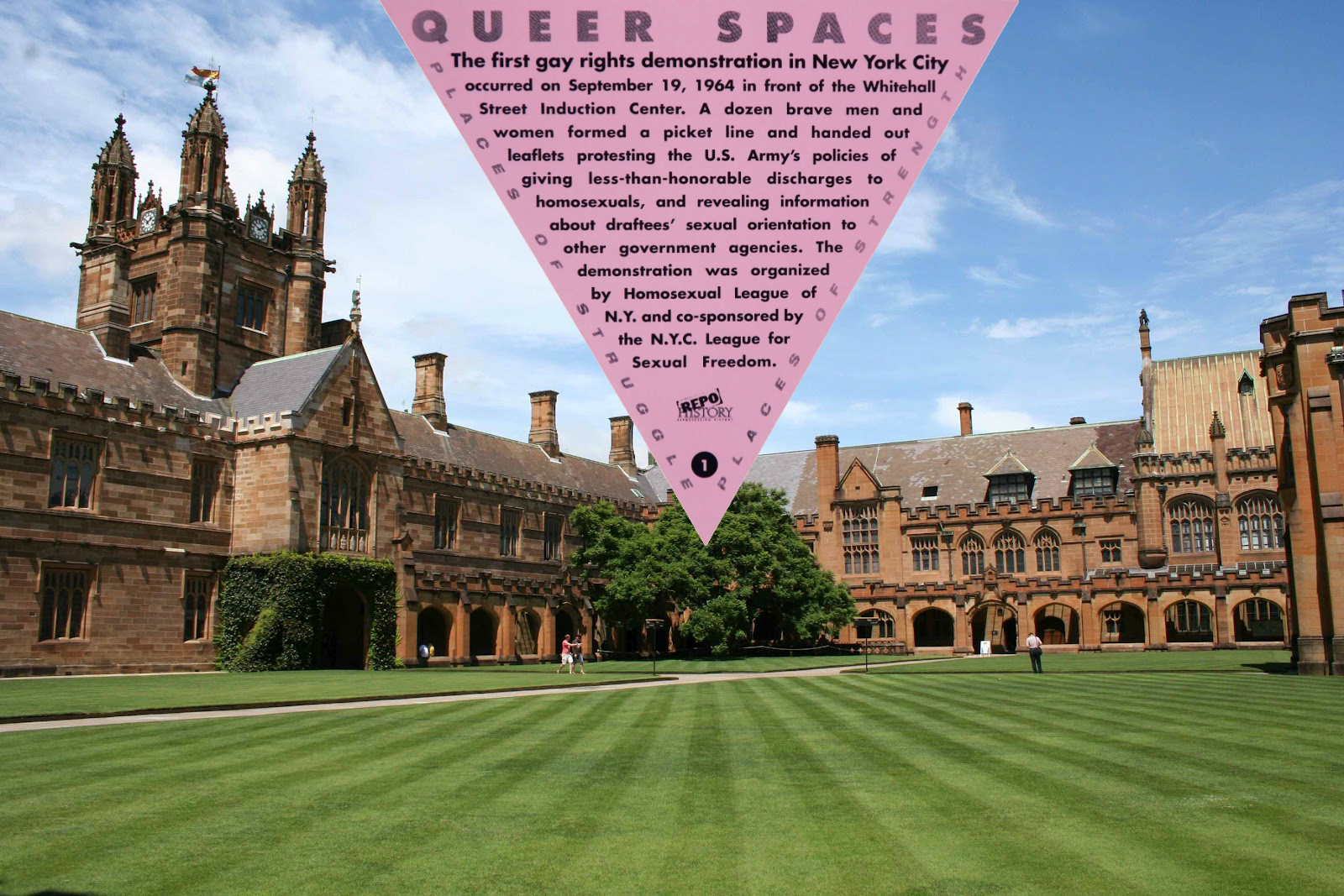Why The Argument Against Queer Spaces Is Bullshit
By Cameron Colwell
Whenever I talk about queer rights around people who don’t get it, one of the arguments I encounter again and again runs something like: “Why do gays want to be treated differently? Don’t you want to be equal, and if so, why don’t you act the same as everyone else?”
Particularly, I’ve run into this line of thinking while defending the existence of my university’s ‘queerspace’. One of the campus’s more politically engaged individuals, a gay member of the Young Liberals, loves to talk online about how the place is an embarrassment, and a form of segregation.
The issue became writ large earlier this year when Daniel Andrews announced his plans to fund an $15 million ‘Pride Centre’ which “will showcase LGBTI art and history, co-locate LGBTI advisory, health and support services, and feature community spaces which will provide a safe environment for LGBTI Victorians to meet and socialise”.
What my fellow queer student fails to realise, is that having a queer space only makes sense when every another ‘space’ is abundantly heteronormative.
Before you tell me that people who don’t conform to gender and/or sexuality norms are already safe in public, I invite you to walk down a main street hand-in-hand with a person of the same gender, or perhaps style yourself in such a way that makes you visibly queer. Better yet, ask one of the many people who do one of those things on the regular and, like, listen.
Of course, the first real ‘queer spaces’ were not state-funded pride centres and rooms for the usage of queer people in universities. They were cafes and nightclubs, places of outwardly respectable reputation, whispered about with speculation and fear. Garry Wotherspoon’s recent book, Gay Sydney: A History, for instance, points at places like ‘The Latin Cafe,’ and ‘Black Ada’s’, where members of the ‘kamp’ community gathered in secret, engaged in same-gender dancing, and engaged in drag balls; with the ‘drag’ doubly functioning as a disguise and way to express non-conforming gender.
What I hope for in a mainstream LGBTQI+ community, places like Andrew’s Pride Centre, is not just a triumphalist memorialisation of the ‘wins,’ but also a recognition that violence perpetrated by heteronormative establishment pushed queer people out into the margins, the closets, and the now-forgotten underground establishments.
There was a popular post I used to see on the internet calling for more non-sexual queer spaces. Cafes and museums, rather than nightclubs. My first knee-jerk reaction was to mentally label the author a prude, but, looking back, it does speak to a need for more spaces to engage with members of our own community.
One of the things about being a queer minority, rather than a racial or religious one, is that there is no refuge from feeling like an outsider found in family.
Occasionally expulsed from our families completely, queer people often find their own ‘second families’ from engaging with queer spaces. While I remain on amicable terms with my own family, I remember the vast loneliness I felt in high school, and how I found my own ‘queer space’ a good three or four years before I was legally allowed to enter a nightclub, on the internet.
The digital queer space I and my friends carved out on Tumblr.com was vital to my development and my identity as a queer man. I still remain in contact with many of the people from those days. Still, after a night of blogging with my fellow queer friends, I then had to endure an aggressively heterosexual space in my high school. Online connection felt like a kind of supplement for a real-life belonging that I longed for, and didn’t find until later.
However, I did feel a belonging of a sort, and then again in a more profound way when I began to go to nightclubs surrounded by queer people – while I have had some issues regarding the looks-based nature of a lot of those places, I was certainly more comfortable there than partying with my straight friends – and when I entered university, finding the Queerspace.
I treasure the sense of communality I’ve found in these places, and regard it as something of a life-saver.
Up until recent events, something about queer spaces and the sense of community generated by the good kind felt unassailable and constant.
What I’m talking about here, of course, is Orlando.
On hearing about the shooting, which is the worst in US modern history, I instantly went into a state I now recognise as grief. Hearing about the details, I discovered something heartbreaking: Barbara Poma, co-founder of Pulse, the nightclub where it happened, created the place in tribute to her brother, John, and said the place was “named for John’s pulse to live on.”
Originally, I struggled to write about Pulse in this piece because I am still processing the event. After all, it happened in the middle of my process. It is difficult to put to words something so tragic and viscerally painful to think about. Being queer post-Orlando feels different to being queer pre-Orlando.
Yet, that communal spirit continues, altered, but still there.
I felt it at the vigil in Newtown, and now, I suppose, my understanding of what a queer space was changed and reaffirmed: The modern idea that queer spaces are just for fun at least and celebration at most has been shown to be false.
Now, it is even more important to recognise that not only are our spaces for pleasure, but finding amid a hostile, alienating world a place for belonging, remembrance, and solace.

